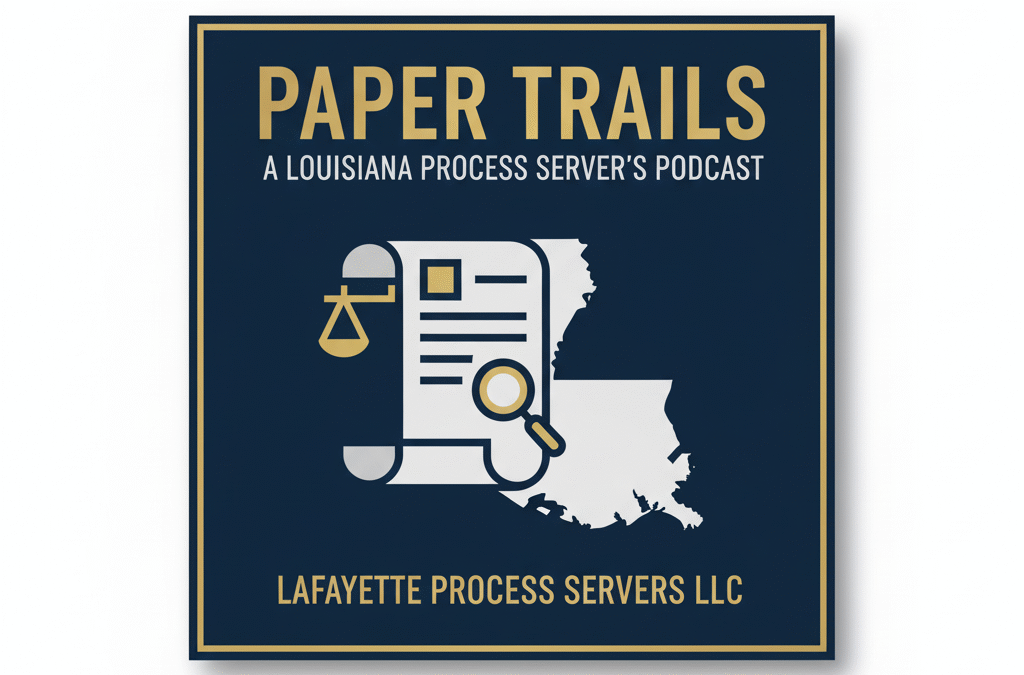
Louisiana Eviction Law: Navigating the Legal Maze from Notice to Writ of Possession
For landlords in Louisiana, the eviction process can often feel like a complex legal maze. However, with a clear map of the process, you can navigate this path efficiently and legally. One wrong turn can lead to costly delays and legal headaches.
As of Wednesday, October 1, 2025, understanding each step is crucial. This guide provides that map, walking you through the entire Louisiana eviction process from the initial notice all the way to the final Writ of Possession.
Step 1: The Starting Point – The Notice to Vacate 📄
Every eviction journey begins here. The Notice to Vacate is the formal written warning to the tenant that they must leave the property.
- For Lease Violations: The most common notice is the 5-Day Notice to Vacate, which landlords use for non-payment of rent or other breaches of the lease.
- The “Shortcut”: Before you do anything, check your lease! Many Louisiana leases contain a “waiver of notice” clause. If yours does, you can skip this step entirely and proceed directly to filing a lawsuit.
You must deliver this notice properly. You must hand it to the tenant personally or securely post it on their front door.
Step 2: Filing the Lawsuit – The “Rule for Possession” 🏛️
If the tenant does not leave after the notice period expires (or if you have a waiver), then you must formally ask the court for permission to evict. You do this by filing a lawsuit known as a “Rule for Possession” or “Petition for Eviction.” You will file this document at your local City Court or Justice of the Peace Court. This step officially begins the legal eviction process.
Step 3: Service of Process – Notifying the Tenant 🚶♂️
Once you file the Rule for Possession, the court requires you to formally notify the tenant of the lawsuit and the court date. We call this critical step service of process.
This isn’t just a casual heads-up; in fact, it’s a legal requirement that must be done perfectly. A judge can throw out an eviction case because of improper service. For this reason, many landlords and attorneys rely on a professional process server. The experts at Lafayette Process Servers LLC ensure they handle service quickly and in strict compliance with Louisiana law, creating a solid foundation for your court hearing.
Step 4: The Court Hearing – Presenting Your Case 👨⚖️
Louisiana’s eviction process is a “summary proceeding,” which means it happens very quickly after filing. At the court hearing, you will present your case to the judge. If you have your evidence in order, the judge will likely issue a Judgment of Eviction. Subsequently, this judgment orders the tenant to vacate the property within 24 hours.
Step 5: The Final Turn – The Writ of Possession 🔑
What if the tenant still refuses to leave after the 24-hour notice period in the judgment? In that case, you have one final turn in the maze. You must return to the court and request a Writ of Possession.
This is the ultimate legal document in an eviction. It is an order from the court directing law enforcement (a constable or sheriff) to go to the property and physically remove the tenant and their belongings. Once law enforcement executes the Writ of Possession, you have successfully navigated the maze and legally regained your property.
Navigating the Maze with a Trusted Guide
In short, from the initial Notice to the final Writ, the Louisiana eviction process is a series of essential steps. While it’s one of the faster processes in the country, you must follow each step perfectly.
Don’t get lost in the legal maze. For the critical steps of delivering the Notice to Vacate and handling the formal Service of Process for court papers, trust an expert guide. Lafayette Process Servers LLC ensures your documents are delivered correctly, keeping you on the fastest and safest path to resolving your case.
Contact us today for all your legal document delivery needs.
⚠️ Disclaimer
This blog post provides a general overview of the Louisiana eviction process and is not a substitute for legal advice. Furthermore, laws are subject to change, and every situation is unique. Always consult with a qualified Louisiana attorney for advice on your specific legal situation.
📚 Sources & Further Reading
- Louisiana Code of Civil Procedure, Arts. 4701-4735: The official state laws governing the eviction of tenants. Link to Louisiana Legislature
- LouisianaLawHelp.org: A non-profit resource on the eviction process for both landlords and tenants. Link to LouisianaLawHelp.org
- Lafayette Process Servers LLC: Your expert for service of all legal documents in Louisiana. Link to Lafayettlafayette-process-servers.come Process Servers LLC
- Catch Me If You Can: Serving Evasive Defendants in Louisiana

